Vietnam preparing for new growth
Amid unpredictable global uncertainties, what should the Vietnamese government do to boost economic growth in Q4 and ensure high growth next year?
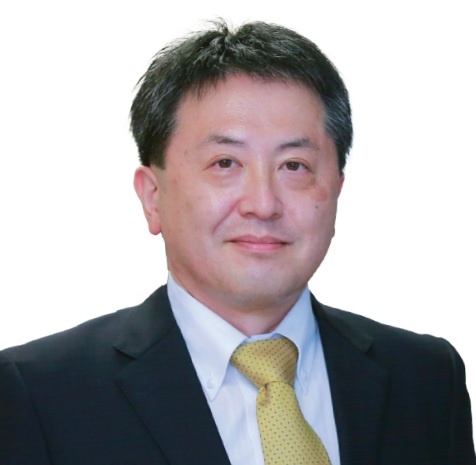 |
| Shimizu Akira, chief representative at the Vietnam Office of the Japan International Cooperation Agency |
After growing 5.03 per cent in Q1 2022, the Vietnamese economy bounced back to 7.72 per cent in Q2, and 6 per cent through the year of 2022 according to the International Monetary Fund (IMF).
I see that despite numerous difficulties in the global economy, Vietnam remains an attractive destination for foreign direct investment (FDI) due to an abundant and diligent workforce.
The diversification of supply chains induced by the US-China trade conflict and the pandemic will enable Vietnam to welcome an increase in FDI inflows and witness a strong shift in the country’s supply chains.
However, Vietnam is forecast to face losses in its human resources (HR) advantages due to ageing population over the next three decades, and the country’s existing model of labour-intensive development will face some limitations.
In addition, Vietnam’s labour productivity remains relatively low as compared to many other nations – only 10 per cent of Singapore, 40 per cent of Thailand, and 60 per cent of the Philippines. Vietnam’s high-quality HR and trained and skillful labourers remain limited to meet a rise in employment opportunities.
Thus, Vietnam needs to invest more on HR development in order to meet the increasing needs for labour in the coming time. This is considered as one of the keys to sustainable economic growth and enhancement of national competitiveness.
The Japan International Cooperation Agency (JICA) has been working with the Vietnamese government in HR development to meet the needs of employment. For example, we are extending ties with the Vietnam-Japan University and the Vietnam-Japan Institute for HR Development, and also fostering technical cooperation for skilled intern improvements.
Vietnam has been rated by the international community to have been doing a good job in economic recovery. What is your assessment about this effort?
According to a conclusion from a recent consultation between representatives from the IMF and the Vietnamese government, the economy is predicted to grow 6 per cent this year.
The economy is forecasted to ensure stable growth from this year on the back of a policy of living with COVID-19. However, Vietnam still needs to take great caution about global geopolitical uncertainties such as the ongoing Russia-Ukraine conflict, increases in input prices of materials for production, and the US raising interest rates, and many nations’ high inflation.
However, we are still seeing that in the coming time, FDI into Vietnam is expected to continue rising, especially in disbursement – reflecting foreign investors’ interest to domestic funding and the business climate.
Japanese investment into Vietnam has expanded over recent years in a wide range of industries. Many foreign investors said that Vietnam has been making great efforts in institutional reforms and betterment of the investment climate. What is your view on this?
The pandemic has helped highlight the importance of and the urgent need for the diversification of global supply chains. Previously, these supply chains were formed in a number of big economies, and now they tend to expand to many other economies. This trend is also emerging within Japan, and Vietnam has been gradually becoming a prospective destination in this trend.
Impressively, many Japanese businesses wish to expand their investment into Vietnam. However, the nation’s localisation rate almost remains unchanged – at about 30 per cent – as compared to about 10 years ago. Meanwhile, such a rate is about 60 per cent in China, and nearly 50 per cent in Thailand.
Aware of this, JICA has been making efforts in supporting many localities in Vietnam to increase the localisation rate. This will help them attract more FDI.
Specifically, we are now implementing a programme under collaboration with Ministry of Planning and Investment, in which Japanese enterprises are supported in terms of market information with guidance. Under this programme, we receive requests of them and help them to look for suitable partners, and also help them overcome technical shortcomings during their performance. Such support is carried out by Japanese experts.
Along with this programme, JICA is now cooperating with the Vietnamese government in formulating a loan project to support 13 vocational schools and a technical cooperation project in Vietnam, which now faces difficulties because of the sudden and unexpected change of the country’s regulations.
If all procedures are completed and the project is deployed, we hope that Vietnam’s training of young and skillful labourers will be improved gradually but significantly. One of the big characteristics of JICA’s cooperation is that Japanese experts would be here assisting at the beginning of the project, and the goal we always aim for is that Vietnamese people will be able to provide training themselves.
How has the past few years of COVID-19 and the limitations affected Japan’s support for Vietnam?
Many public works in Vietnam have been delayed in that time. JICA-funded projects including the Line No.1 metro railway project in Ho Chi Minh City were also severely affected due to the impact of the pandemic.
Before then, every year JICA could send dozens of experts to Vietnam to work and train about 300 Vietnamese people in Japan. However, the pandemic forced all of these activities to take place online, and 40 of our volunteers working in Vietnam had to return to Japan.
However, we have made every effort to minimise these impacts on operations, with the quick restoration of the operation of projects to help Vietnam recover as soon as possible. We have also quickly deployed the reassignment of volunteers, whereby, Vietnam is the first country in the world where we have re-sent volunteers after the pandemic. Currently, along with Vietnam’s policy of living with COVID-19, JICA’s activities have returned to normal as before the pandemic outbreak.
I believe that not only myself, but people who stay in Vietnam also appreciates the post-pandemic policy taken by the government. Normalisation of visiting each country will leads to more active FDI growth. However, in order to attract FDI continuously, more development of high-quality infrastructure and HR are needed in the long run.
What my concern is that, in recent years the amount of newly-signed official development assistance (ODA) loan projects have decreased sharply, about one-sixth of the peak amount.
| Nguyen Chi Dung - Minister of Planning and Investment
In recent times, we have been focusing on COVID-19 prevention to protect people’s health. We have now shifted from this towards maintenance of production and support for enterprises and people, in order to avoid labour and supply chains issues. Results so far come from timely support and policies from the National Assembly (NA) in the pandemic era, including a fiscal and monetary policy worth $15 billion or about 4.5 per cent of GDP last year to support the Programme on Socioeconomic Recovery and Development for 2022-2023. Support also came from resolutions of the National Assembly Standing Committee on reducing environmental protection tax aimed to control prices of goods and inflation, and to reduce costs to support people’s livelihoods. These resolutions have been enacted quickly and effectively. Thanks to this, we have successfully controlled the pandemic, maintain production, and prevent disruptions of supply chains. We have not had to pay an expensive price or lost much time for economic recovery in the post-pandemic period. This has demonstrated the high solidarity and consensus within the Party, the NA, and the government; the close coordination among ministries, agencies, sectors, and localities; and the great efforts of the entire political system, especially the business community and individuals, as well as support from the international community. Ho Duc Phoc - Minister of Finance
The fiscal policy has been serving as the mainstay of the economy. State budget revenues have reached $70.18 billion, up 14.3 per cent compared to the estimates and 2.9 per cent higher than the plan in 2021. However, there is one special factor – domestic revenues still achieved a 9.8 per cent on-year growth rate. Thanks to the government’s implementation of a number of solutions, this year is seeing the most tax reduction, meaning a decrease of $10.13 billion in the first nine months of this year to implement tax payment extension, postponement, and extension. In addition, we have also been implementing budget collection measures such as issuing e-invoices, building a cross-border e-portal. In the first nine months of this year, we have collected $137.7 million from 37 international technology groups. Next year will see difficulties as prices of raw materials have increased strongly, with the price of imported materials rising 10.86 per cent on-year so far this year, while the price of domestic materials has also followed suit, at 6 per cent. Meanwhile, the price of petrol, oil, and gas has also stayed on a high level. The credit room has been tightened and the capital market has also become increasingly difficult. Especially, the world’s inflation and global interest rates have soared, having negative impacts on our socioeconomic management in the coming year. While costs continue to rise, demand falls, making it difficult for production and business activities. |
Vietnam still needs to develop infrastructure for economic growth, and there are still many roles that ODA can play. Compared to market finance, these loans are high in concession, with long repayment periods and low interest rates. This suits important and high quality infrastructure developments. Meanwhile, technical cooperation, which conforms with mainly grants, plays a significant role in HR development. The combination of both schemes will truly help economic growth and improve people’s lives in this country.
| Although global geopolitical tensions and tightening financial conditions will continue to limit inflows in 2022, FDI disbursement will be strong on the continued confidence of foreign investors and doing business in Vietnam becoming easier. A determined effort by the government to disburse public investment, including the implementation of the Programme on Economic Recovery Development, would offset the effect of softer exports caused by weaker global demand. The State Bank of Vietnam will continue to pursue a flexible and prudent monetary policy by continuing to keep its policy rates unchanged. It will also roll out the interest rate subsidy programme to provide low-cost financing for the economy. However, monetary accommodation, such as the interest rate subsidy, loan restructuring, and regulatory forbearance, could delay classification of nonperforming loans, forecast at 5 per cent of outstanding loans in 2022. Efforts to keep the exchange rate stable to support exports and imports could also stress foreign reserves. The fiscal deficit is forecast to widen to 4 per cent of GDP this year on continued price controls, tax cuts, targeted fiscal support, and spending on social security, healthcare, and COVID-19 vaccinations. Sufficient fiscal space, however, is provided by well-controlled public debt. At an estimated 43.1 per cent of GDP in 2021, this is comfortably below the 60 per cent statutory level. National external debt is forecast at 38.4 per cent of GDP, which is within the statutory 45 per cent limit. A strong fiscal position and low public debt have considerably aided Vietnam’s robust economic recovery, despite rising global inflation and interest rates.Source: Asian Development Bank |
| While the economic recovery has remained strong, heightened uncertainties related to the slowing global economy, rising domestic inflation, and tightening global financial conditions warrant heightened vigilance. Given the economy is not fully recovered and growth in main export markets is expected to slow, continued active fiscal policy to support the economy should be closely aligned with economic outcomes and coordinated with monetary policy. At the same time, as the consumer price index and core index are reaching 4 per cent as set by authorities, monetary authorities should be ready to consider further tightening of monetary policy to ensure inflation remains anchored. Given the end of forbearance and tightening financial conditions, the financial sector faces heightened risks and prompt SBV guidance would help stemmaterialisation of such risks at the wider, sector level basis, potentially affecting the real economy. Recent turmoil around the Saigon Commercial Bank case highlights the need for increased transparency through timely publication of detailed information about the banking sector performance, enhanced corporate governance, strengthened risk-based supervision, including supervision of business groups and related party lending and early intervention, and an enhanced bank resolution framework.Source: World Bank |
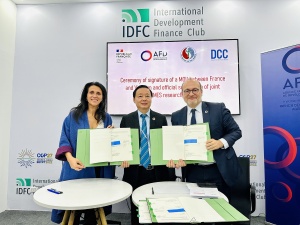 | Vietnam reiterates strong commitments at COP27 Vietnam is engaging in negotiations regarding issues in which the country needs international support, such as financing and technical assistance to draft plans in energy transition and assess renewable energy potential. |
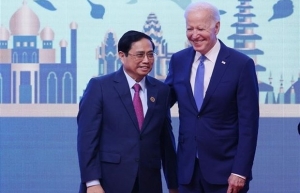 | PM Pham Minh Chinh meets with US President Joe Biden in Phnom Penh Vietnamese Prime Minister Pham Minh Chinh met with US President Joe Biden on November 12 within the framework of the 40th and 41st ASEAN Summits and Related Summits in Phnom Penh, Cambodia. |
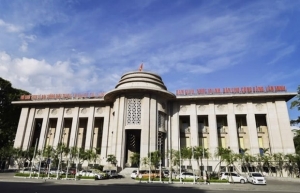 | US removes Vietnam from monetary manipulation monitoring list Vietnam has been removed from the US's monetary manipulation monitoring list, according to the State Bank of Vietnam (SBV). |
What the stars mean:
★ Poor ★ ★ Promising ★★★ Good ★★★★ Very good ★★★★★ Exceptional
Related Contents
Latest News
More News
- Kurz Vietnam expands Gia Lai factory (February 27, 2026 | 16:37)
- SK Innovation-led consortium wins $2.3 billion LNG project in Nghe An (February 25, 2026 | 07:56)
- THACO opens $70 million manufacturing complex in Danang (February 25, 2026 | 07:54)
- Phu Quoc International Airport expansion approved to meet rising demand (February 24, 2026 | 10:00)
- Bac Giang International Logistics Centre faces land clearance barrier (February 24, 2026 | 08:00)
- Bright prospects abound in European investment (February 19, 2026 | 20:27)
- Internal strengths attest to commitment to progress (February 19, 2026 | 20:13)
- Vietnam, New Zealand seek level-up in ties (February 19, 2026 | 18:06)
- Untapped potential in relations with Indonesia (February 19, 2026 | 17:56)
- German strengths match Vietnamese aspirations (February 19, 2026 | 17:40)

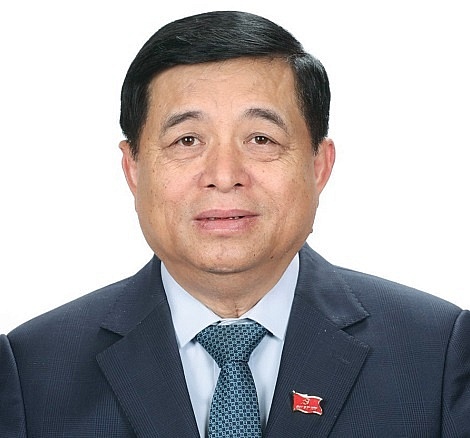
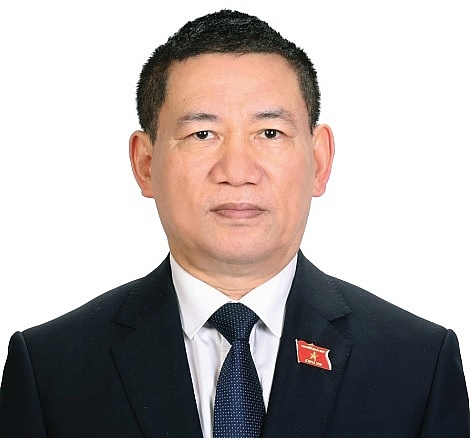
 Tag:
Tag:


















 Mobile Version
Mobile Version